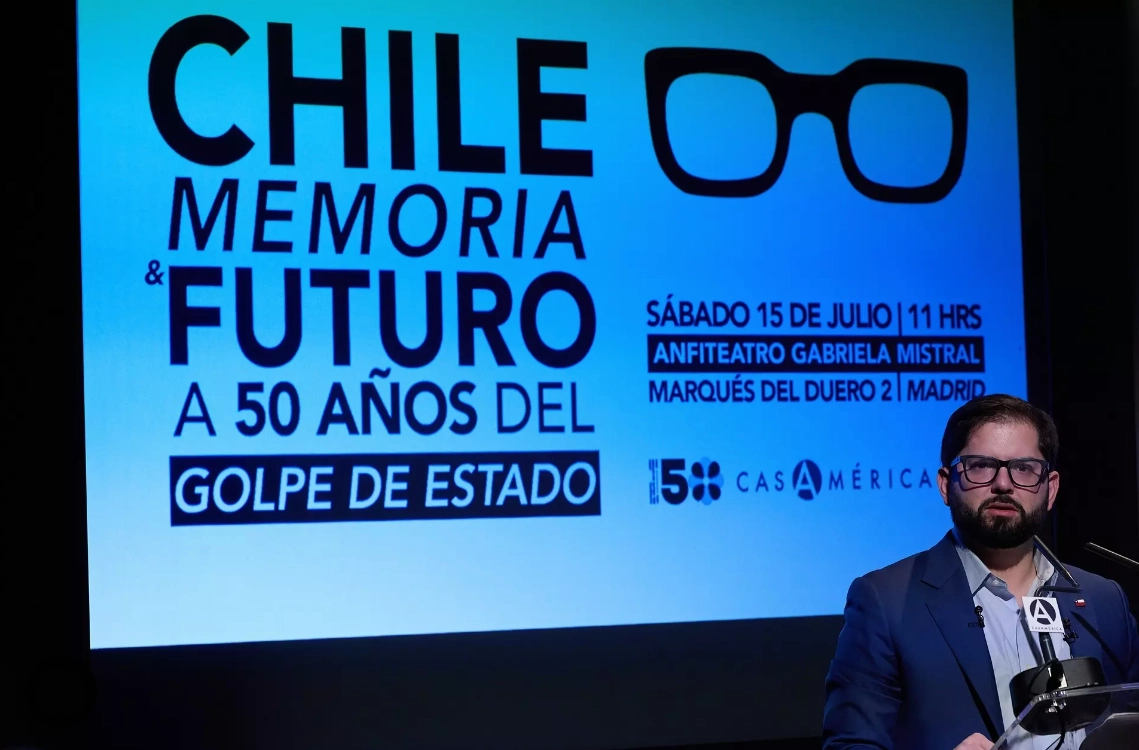A few days before commemorating half a century after the 1973 coup d’état in Chile, the historical divisions linked to the date are still present and undeniable. Data from public opinion surveys reveal a context of antagonisms that makes it difficult for this commemoration to be used to forge broad agreements that will strengthen democracy in the future. Those abysses usually become quite visible in Chile in the form of institutional crises such as the one that occurred recently around the constitutional plebiscite. Are those oppositions of the 1970s therefore projected in the deep discrepancies revealed – fifty years later – by the events surrounding the vote for constitutional reform?
The GPS Ciudadano survey produced by the Santiago-based research agency Datavoz, conducted more than a month before the anniversary of the coup, indicates that the antitheses are still in force. Zooming in on those who voted for or against in the plebiscite of September 4, 2022, where – let us remember – the rejection of the constitutional proposal of the Constituent Convention 2021-2022 prevailed (54.1%), citizens reveal radically opposed perceptions and interpretations of the fiftieth-anniversary events. Faced with the question “What is the first word or idea that comes to your mind?” when faced with the commemoration of the 50th anniversary of the coup d’état, those who approved the constitutional reform, and therefore tend to inscribe themselves in a more progressive position, associate the violent democratic rupture by the military with the terms justice, dictatorship, death and pain, which reflects the persistent shock and trauma related to that period of Chilean history. On the other hand, those who voted for the “rejection” of the amendment to the Constitution connect the 1973 coup d’état to concepts such as freedom, division, the past, resistance to communism, and words of gratitude to Pinochet. In both groups, ideas associated with the need for reconciliation or closing this stage with acts of justice appear with very little force.
The differences between the two groups deepen when the importance of commemorating the 50th anniversary of the coup is evaluated. Four out of ten citizens consider it of little or no importance to commemorate it, reinforcing a more distant attitude. When this opinion is broken down by vote, the divisions clearly emerge again: a majority (51%) of those who favored constitutional reform understand that remembering the events is essential, as a way of cultivating the historical memory of the democracy breakdown. In contrast to this position, a large plurality (45%) of those who rejected the constitutional reform did not consider as relevant any celebration or act that recalls the tragedy of 1973.
The absence of consensus on the past is very notable. More than three-quarters of those who opposed the constitutional reform limited their condemnation to the human rights violations after the coup, but without questioning the legitimacy of that rupture of the republican and democratic order by the military. On the other hand, two-thirds of those who approved the reform believe that both the coup d’état and the violations are unjustifiable. These antagonisms are far from being idioms or immediate influences of forces or party leaders and – seriously – seem to be anchored in processes of political socialization housed within each family or nucleus of reference. When asked about how their immediate family (parents of the respondents) reacted at the time of the coup, the result is that those who voted “No” to the new constitution tend to have a family background more favorable to the coup, while those who voted “Yes” have an opposing background. The political differences thus go back to the family histories of those times, prolonging the schism experienced fifty years earlier.
Half a century after the coup d’état in Chile, divisions over how to interpret the past persist, conspiring not only against convergence on a common narrative about the past but also projecting a bias against a consensual modus operandi in the face of recent and future institutional crises.
*Translated by Janaína Ruviaro da Silva from the original in Spanish.











